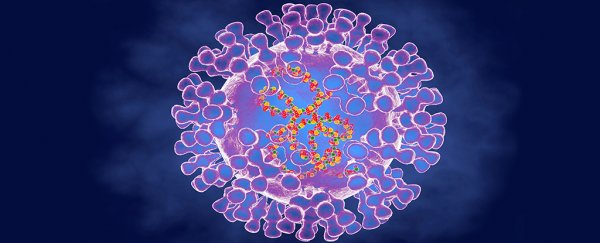Spain and Portugal have detected over 40 suspected cases of monkeypox, a viral infection rarely seen in Europe, with both outbreaks concentrated in the Madrid and Lisbon areas, officials said Wednesday.
The announcement came just days after the British health authorities said they had detected seven cases so far this month, with the World Health Organization working with the government to investigate the outbreak.
Health officials have noted some of these infections may be through sexual contact – in this instance among gay or bisexual men – which would be a new development in understanding how the virus is transmitted.
In a statement, health authorities in the Madrid region said they had detected "23 possible cases of monkeypox", indicating all of them were believed to have been transmitted through sexual activity.
"In general, its transmission is via respiratory drops but the characteristics of the 23 suspected infections point to it being passed on through bodily fluids during sex relations," the statement said, without giving further details.
"All of them are young adult males and most of them are men who have sexual relations with other men, but not all of them," Elena Andradas, head of public health in the Madrid region, told Cadena Ser radio.
Another 20 suspected cases of monkeypox – endemic in parts of Central and Western Africa – have been detected in the Lisbon region, Portugal's health ministry said in a statement.
"The cases were all among males, the majority of them young, who had ulcerated lesions," it said.
Symptoms of monkeypox in humans include a rash which often starts on the face then moves to other parts of the body, fever, muscle ache and chills. Most people recover from the illness within several weeks.
Transmission is usually via close contact with infected animals such as rodents and monkeys, and is limited between people. It has only been fatal in rare cases.
The UK Health Security Agency (UKHSA), a public health protection body, on Monday said it had detected four new cases after registering three cases earlier in May.
All four of the additional cases were men who have sex with men or self-identify as gay or bisexual, it said.
None have known connections with the three earlier confirmed cases, the first of which was linked to travel from Nigeria, raising fears of community spread of the virus.
